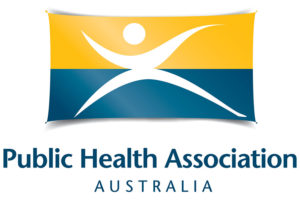Comparing armed violence, firearm injury prevention and gun laws across the world seems an extraordinary feat but gunpolicy.org does just that.
The global project of the Sydney School of Public Health collates data from 350 jurisdictions worldwide.
Founding director Phillip Alpers, Associate Professor at the University of Sydney, warns Australia now has more guns than before the Port Arthur killings in 1996.
And a big problem for the country is an inability to track these weapons.
Twenty-five years on from the great strides made in gun control in the aftermath of Port Arthur, a national firearms registry – included as part of the National Firearms Agreement – is yet to be established.
Professor Alpers said without registering individual guns, rather than just gun-owners, they can’t be tracked if they are stolen or given away.
“Licensing must be done in the same way we register specific cars to a specific owner,” he says.
There is some data and data-sharing between various jurisdictions but Australia is far from uniquely identifying each firearm, as was envisioned in the NFA in 1996.
“We still do not have a true national register of firearms which can be used by law enforcement from any jurisdiction in real time, as they can with vehicles,” he says.
And, like others who have worked for better gun control following Port Arthur, Professor Alpers said no state or territory has been fully compliant with the National Firearms Agreement.
Having immersed himself in the issue for many years – including having “read every gun law in the world that is in English or has been translated into English” – the academic can say Australia compares well globally.
“Australia has the most comprehensive and wholistic suite of gun control laws anywhere in the world,” he says.
However, he warns aspects of the NFA were never implemented in some states and territories and legislation that was enacted has been watered down over the years under pressure from the gun lobby.
“Along with almost all colonies of European empires, Australia adopted three legislative pillars of gun control – licensing gun owner, registering each of their firearms, and treating private gun ownership as a conditional privilege, not a right,” he says.
“Now these pillars need strengthened. They have been whittled down.”
Prof. Alpers flew to Australia from New Zealand in the direct aftermath of Port Arthur, meeting up with Rebecca Peters and Simon Chapman.
“I was only there for a few days when all that hard work was being done and then I had to fly back to New Zealand. But I helped where I could.”
Detailed research on mass shootings was Prof. Alpers valuable contribution to the frenzied debate.
Shooters were arguing for the retention of the .22 automatic rifle, for example, but Alpers data showed .22s were used in most gun deaths.
“It was used more than any other type of gun,” he says.
The weapon was added to the prohibited list.
His ongoing research and data collection leaves him in no doubt Australia has no room for complacency on gun control.
“Some protections have been wound back. New South Wales, for example, has allowed silencers, Queensland permits the use of AR 15s and NSW now allows shooting in national parks.”
Professor Alpers says most Australians are justifiably proud of what was achieved in gun control after Port Arthur.
“What we have to do now, however, is counter complacency,” he says.
Most MPs, he says, are at some level frightened of the gun lobby and so there is an essential role still for gun control groups and academics.
“Sometimes there is over reach by some gun control advocates and sometimes some advocates think I am too conservative,” he says.
“At the end of the day, however, everyone wants gun control of some degree.”
Professor Alpers believes some politicians have set their sights too low.
“All jurisdictions in Australia need to come up to the same, higher standard,” he says.


























